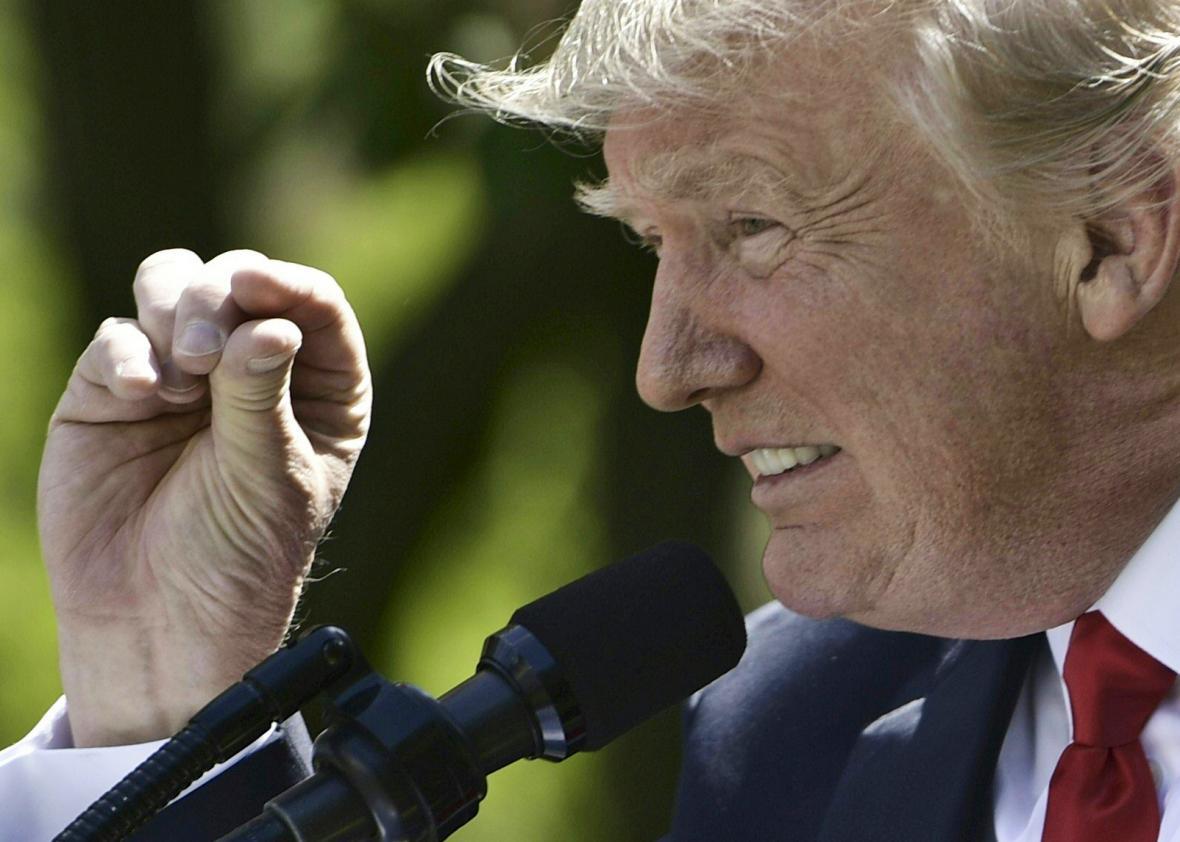On Thursday afternoon, Donald Trump delivered a factually challenged speech announcing that the United States would exit the 2015 Paris Agreement on climate change. In his address, the president made the case that staying in costs American taxpayers exorbitant amounts of money.
“We’re going to be paying billions and billions and billions of dollars,” Trump claimed in his Rose Garden announcement. Here’s the full quote:
Beyond the severe energy restrictions inflicted by the Paris Accord, it includes yet another scheme to redistribute wealth out of the United States through the so-called Green Climate Fund—nice name—which calls for developed countries to send $100 billion to developing countries all on top of America’s existing and massive foreign aid payments. So we’re going to be paying billions and billions and billions of dollars, and we’re already way ahead of anybody else. Many of the other countries haven’t spent anything, and many of them will never pay one dime.
Grammatically speaking, “billions and billions and billions of dollars” is a minimum of $6 billion. As the New York Times reported Thursday, the U.S. has promised to supply up to $3 billion in aid for developing nations by 2020 to help them meet their emissions-cutting goals. That aid is part of a collective pool called the Green Climate Fund, as Trump says, which is administered by the United Nations Framework Convention on Climate Change, according to the Paris Agreement. While $3 billion may sound like a lot of money to most people, for the United States government, which took in some $16.5 trillion in GDP last year, it’s a pretty paltry sum. And it isn’t even an annual contribution. As of May, the U.S. has kicked in a third of its $3 billion pledge to the fund, according to the Washington Post.
Trump also took issue with the idea that India “makes its participation contingent on receiving billions and billions and billions of dollars in foreign aid from developed countries.” It’s true that India is seeking international assistance to help defray the costs of meeting its goals under the agreement. But as the Times of India noted Friday, total foreign aid to India amounted to just $3.1 billion in 2015, the year the accord was inked, with U.S. aid to the country weighing in at around $100 million.
Why is the U.S. paying other countries to reduce their emissions? As USA Today explains, the UNFCCC’s fund is set up such that industrialized nations contribute more to efforts aimed at reducing carbon emissions in developing countries because such nations spew more pollutants into the atmosphere on a per capita basis than their poorer counterparts. Essentially, we’re paying up because we pollute more. Trump railed against how “many [countries] will never pay one dime,” but many countries will never poison the planet as much as we have, either. As the New York Times’ Hannah Fairfield put it Thursday:
The president often frames his “we the victims”-style understanding of U.S. global relationships in terms of money. And since taking office, some amateur linguists have noted, the phrase “billions and billions” has become something of a leitmotif for Trump, a verbal tic that seems to be his way of saying “a lot,” regardless of how substantial the actual dollar amounts involved are. If he’s so concerned about what things cost, you’d think he’d at least take pains to be a bit more specific.
